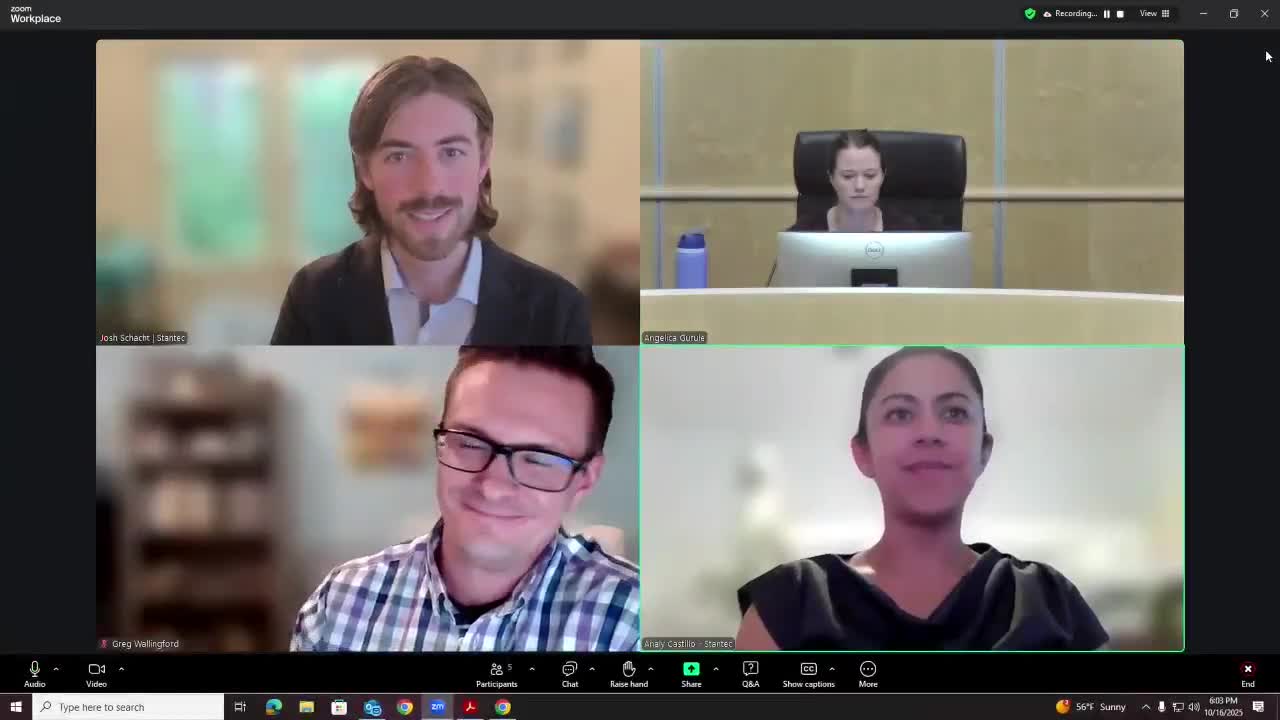Environmental Sustainability Board forwards plastic-bag research to council, seeks guidance for next steps
Get AI-powered insights, summaries, and transcripts
Subscribe
Summary
The Los Alamos Environmental Sustainability Board voted Oct. 16 to forward staff research on single-use plastic-bag policies to county council and asked for further guidance on whether to pursue additional community engagement.
The Los Alamos Environmental Sustainability Board voted Oct. 16 to forward research on single-use plastic-bag policies to county council for consideration and to request further guidance on next steps, including whether the board should pursue additional community engagement.
The motion — "I move that the Environmental Sustainability Board forward the plastic bag research to council for consideration and further guidance" — was moved by Board member Sue Barnes and seconded by Board member Eric Luschel; the board approved the motion by voice vote.
Why it matters: the research responds to a council directive to evaluate single-use plastic bags with consideration for recyclability, alternatives and the county’s recycling and enforcement costs. Staff presented environmental lifecycle points, local estimates for bag use and recycling-contamination costs, examples of municipal fee and ban models from elsewhere in New Mexico, and recommended follow-up steps for council consideration.
What staff presented - Scope: staff said they examined environmental impacts and alternatives, municipal ordinances and fees in New Mexico, and local data from retail and recycling operations. The board was reminded this item traces to a council motion requesting an evaluation of single-use plastic bags that consider recycling ability, alternatives and county costs. - Local estimates and recycling context: staff reported that Smith’s (the Los Alamos supermarket) provided an estimate for the Los Alamos store of roughly 3.2 million single-use plastic bags per year (figure provided by store representatives; not independently verified). White Rock’s prior fee program was discussed and staff used a conservative working estimate for White Rock of about 130,000 bags per year; staff flagged uncertainty in that figure and noted it needs confirmation. - Recycling and contamination costs: staff said plastic bags are not accepted in curbside recycling and that national estimates suggest 80–87% of single-use bags are not recycled. Locally, staff said the county expects roughly 1,500 tons of mixed recycling this year with a historical contamination rate near 17% (about 266 tons of contamination). At $46 per ton charged for contamination, staff calculated roughly $12,000 in annual contamination costs to the county; staff noted contamination includes many materials beyond plastic bags. - Policy options illustrated: staff described two primary local options that other municipalities have adopted: a ban on single-use plastic bags, or a fee (example: a 10¢ bag fee with a small per-bag retention for retailers and the remainder to the municipality). Staff provided an example revenue calculation for Los Alamos: at a 10¢ fee with 1¢ retained by the retailer and 9¢ to the county, the estimate was about $325,000 in fee revenue per year, with roughly $292,000 directed to Los Alamos County; staff noted council would decide permitted uses for revenue and typical exemptions (medical, EBT/SNAP, small businesses) used elsewhere.
Concerns and implementation challenges raised Board discussion highlighted implementation and equity issues: potential unintended consequences (higher household purchases of trash bags), difficulty enforcing requirements with large retailers, the need to define exemptions (medical uses, SNAP/EBT customers, small businesses), the administrative cost of retailer reporting and follow-up, and the need for sustained education to keep compliance rates high.
Staff recommendation and next steps Staff asked council for guidance on whether it wanted the board to pursue additional research and community engagement (resident and business surveys, outreach events). The board’s motion forwards the research to council and requests further direction; staff said a waste-audit update (scheduled by the county) may provide additional contamination detail for council consideration.
"If council decides to keep pursuing this research, we request guidance and expectation on engagement with the community," a staff presenter said during the meeting (presenter identified in the meeting record as a sustainability staff member). "We would recommend at minimum further engagement with businesses and residents before council decides on a fee or ban."
Ending The motion to forward the research passed by voice vote. Staff will send the research packet to county council and asked council to indicate whether the board should proceed with broader public engagement and, if so, what questions and exemptions council wishes staff to address.
